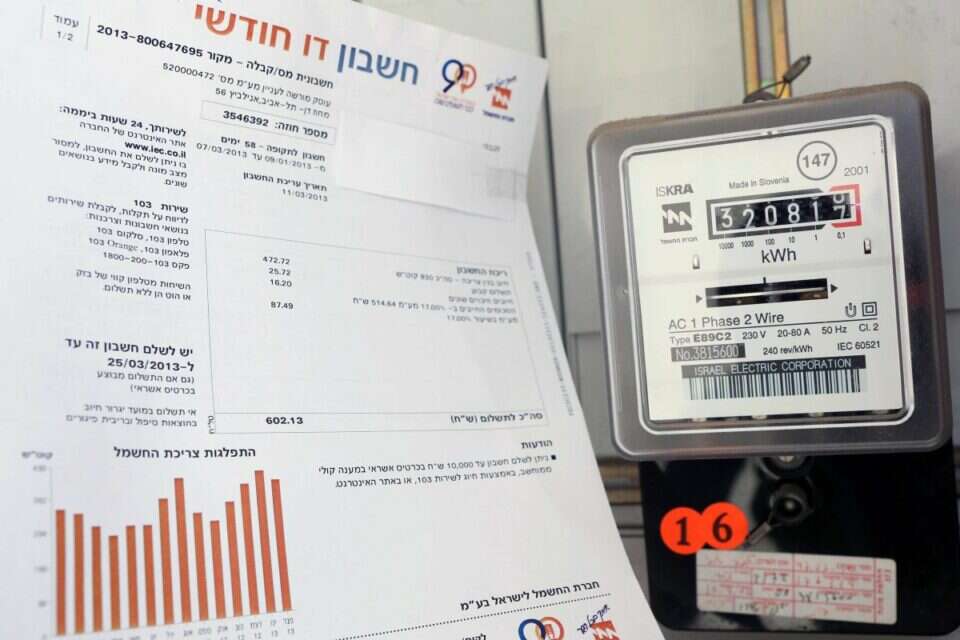After the increase in the price of gasoline at the beginning of 2024, the wave of price increases does not stop, with the price of household electricity also jumping by 2.6% next month. Is the Israeli economy undergoing a comprehensive process of price increases that will harm all of us – and especially in times of war?
Price increase (illustration), photo: GettyImages
To understand the situation, we spoke with senior economist Dr. Avichai Snir of Bar Ilan University. According to him, the most important significant factor in everything related to price increases is the Israeli government alone, and the question is how it will deal with the huge expenses required by the state due to the events of the period.
"First, in terms of global processes and in terms of fuel prices, I want to reassure you. At the moment, there are no signs in the world of increases in the prices of basic goods, and therefore there are no signs of factors that will help create price increases in Israel. In addition, the strength of the Israeli shekel enables importers to import products to Israel at reasonable prices.
"Of course, all this expectation is connected to a situation in which there will be no party to shuffle the cards and initiate a difficult international event. For example, if Putin attacks Ukraine fiercely and shakes up the West, or if the Houthis go wild and block huge oil tankers despite Western efforts to block them, then two such events will be a tiebreaker and they will shuffle the cards in the world and lead to price increases. Beyond such cases at the moment, there is no sign of price increases."
The activity of the forces in the Gaza Strip. The war actually has a positive effect on prices, Photo: IDF Spokesperson
Dr. Snir also addressed the increase in the price of gasoline, noting that this is only an Israeli government activity. "Fuel has now gone up because the government has cancelled the tax discount that has been on it since the previous government. Both Minister Lieberman and Minister Smotrich lowered the tax imposed by the state on gasoline so that the price of a liter of gasoline would not be around eight shekels, which would greatly anger the public.
"Now the price of gasoline around the world is falling, so the finance minister believes that the public will better absorb the increase in the price of gasoline, and he canceled the tax discount. Therefore, in the two areas of fuel and electricity, I don't see that there is anything that can be done, but beyond that there will be no price increases."
Another factor that, according to Dr. Snir, stabilizes prices in the economy is the war itself. "War is a factor that leads to a reduction in demand, when there is little demand, prices are not raised, but on the contrary, they are even lowered. Paradoxically, it can be said that a severe event or recession leads to a drop in prices. This expectation is what led the Bank of Israel to lower the interest rate. The Bank assesses that inflation will not rise, so it is possible to lower the interest rate."
Plenary session voting to amend the budget, photo: Oren Ben Hakon
The last factor that is liable to shake up the Israeli economy is actually the government, with regard to its conduct in the area of the state budget. Here Dr. Snir explains that the war exposed the fact that the defense budget in Israel has to rise dramatically, at the expense of other state expenditures.
"What is happening right now is the fact that there are a lot of expenses for the war, but these expenses will not decrease in the future because there is an understanding that the defense budget must be greatly increased in the face of the challenges facing Israel. So here is the question of what the government will do. In reality, if the government does not adapt itself, but leaves the expenditures as they currently are, then the state will have a real problem, because it will be necessary to either borrow money from the world or impose taxes on the public – two processes that will harm us all and lead to an increase in prices.
"By the way, in a situation of continued expenditure and lack of budgetary restraint, the state has two bad options. The first is an increase in the VAT imposed on our purchases, which will make all products more expensive. On the other hand, it can borrow a lot of money from abroad, but these debts will also bring damage and inflation. Therefore, the functioning of the government and the responsibility it will take upon itself can very, very much affect the state of the economy in the future."
Wrong? We'll fix it! If you find a mistake in the article, please share with us

